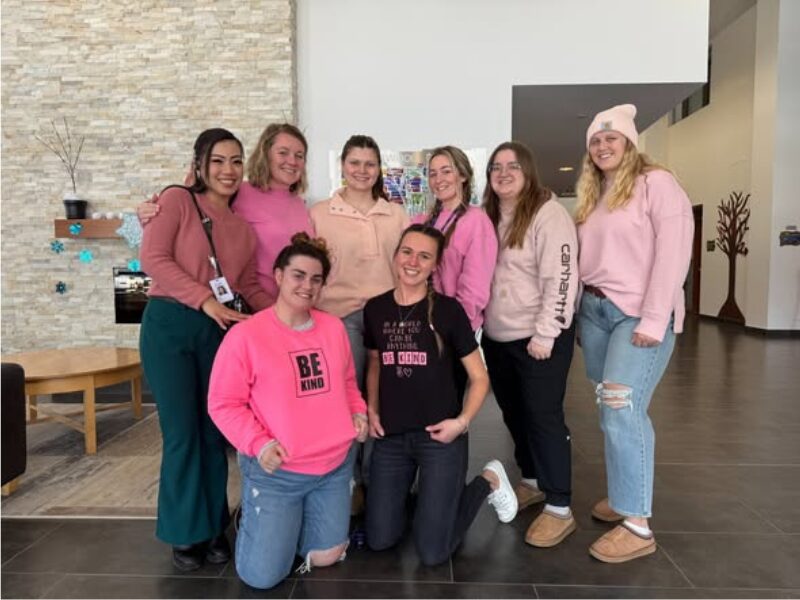A Tribute To Our CYCs
Typically teachers work alone in a classroom. We are in charge of a group of young people and while we have colleagues we work closely with at our school, ultimately, when we are teaching, we are the only adult in the room.
This is one of the things that make working as a special education teacher so unique; we are rarely alone in our classrooms. In a special education classroom, it is common to see educational assistants and/or Child and Youth Counsellors (CYCs) actively working with teachers to deliver instruction and support student learning and skill development.
When I first began teaching in a special education classroom, the idea of having other adults present was actually pretty intimidating. Are they going to judge me as a person and teacher? Will they be critical of my lessons? How do I incorporate them and their skills into my teaching methods?
After getting over my initial worries, I’ve found that having the support of these caring professionals (here at Lutherwood, we are supported by CYCs that we call Child and Youth Workers) is a tremendous asset that improves my ability to teach and my students’ ability to learn. Now, it’s hard for me to imagine being alone in the classroom!
This week (May 3 to 9, 2015) is International Child and Youth Care Workers’ Week. It’s an opportunity for me to recognize the tremendous work done at Lutherwood and across the Waterloo Region District School Board by our CYCs. I see them as a group of professionals who do not get the credit that they deserve. In the media, I can think of countless movies (Lean on Me, Dead Poet’s Society, Freedom Writers…) and television shows (Boston Public, Glee, Mr. D…) that celebrate all that teachers do; yet few recognize the work of CYCs in supporting teachers and students.
A good CYC is worth their weight in gold—and I have been fortunate enough to work with some very good ones. CYCs support student learning, they sit with students and help them focus on lessons, help them work through challenging assignments, and even support them when communicating with teachers about their struggles in class. And there is so much more to their profession. Here at Lutherwood, they teach life skills and support families. Those in our live-in treatment program stay overnight, serve meals and create home-like structures for the youth so they have a sense of safety and belonging. They support youth when they receive bad news, help them use coping strategies to support their mental health, and come up with plans to help keep at-risk youth safe in our communities. When it comes to the profession of a CYC, it seems to me that going above and beyond is simply part of their job description.
You can learn more about the hard work and dedication of CYCs on the Ontario Association of Child and Youth Care website at Child and Youth Care Workers' Week. If you are fortunate enough to work with a CYC, you can thank them at Thank a Youth Worker Day. I also recommend checking out the film Short Term 12— what can only be described as a love letter to the CYC profession, it is one of only a few media portrayals of child and youth work, and happens to be the most realistic portrayal I have seen of working with youth in a live-in treatment facility.
Instagram Feed
"Getting arrested was the lowest time in my life. Starling helped me get my life on track, appreciate what I have and be responsible for my life."












